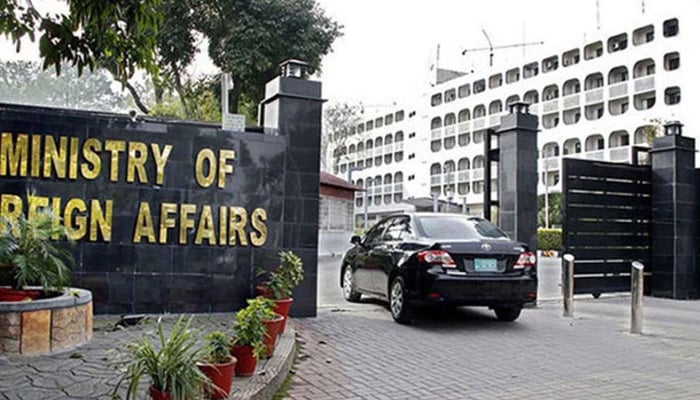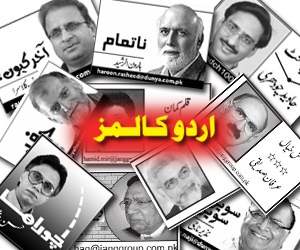Modi Could Make Or Break India
Posted By: Kabira on 23-06-2019 | 19:03:50Category: Political Videos, NewsBy the end of his second term Prime Minister Narendra Modi could become India’s paramount leader, situating him next Chinese President Xi Jinping and the President of the Philippines Rodrigo Duterte. When it comes to centralizing power, that is.
That could make India a strong and vibrant country or set the stage to break it into pieces.
There was a time India was no place for “strongmen,” according to Ruchir Sharma, Head of Emerging Markets and Chief Global Strategist at Morgan Stanley Investments.
The country’s democratic system wouldn’t tolerate centralization of power, for a reason: elections are determined in mofussil, “provincial areas outside the mega-cities of Mumbai and New Delhi,” according to Sharma.
In his first term, Modi began to change that. He turned into the strongman of India, taking all sorts of bold measures, such as the demonetization of the country’s economy, and the introduction of Goods and Service tax, and the Land Acquisition Bill.
That’s why mofussil turned against Modi in December elections. But mofussil couldn’t stop Modi in national elections, which gave him another term to advance his centralization policies and become the paramount leader of India.
“Every leader tries to grab more and more power, and Modi too will try,” says Udayen Roy, Professor of Economics at LIU Post. “His next goal is to try to win power in India's 29 state governments.” If that push succeeds, then Modi will get control over the upper house in India's parliament around 2021. (Currently, Modi controls the lower house.)."
What does it mean? “At that point, he could try to do something drastic to ensure that he would never have to worry about losing power ever again,” adds Professor Roy.
That could be both good and bad for the future of India.
On the good side, a strong Modi could keep on lifting India up at home and abroad, as was discussed in a previous piece here.
Before Modi assumed office, India’s economy was barely growing. It was near the bottom of major international rankings, next to its neighbors, Pakistan and Bangladesh.
After Modi assumed office, India’s economy began growing at robust rates, beating mighty China. It climbed 23 spots in the World Bank’s 2018 Ease of Doing Business ranking to the 77th position, up from 100thin 2017.
And that came on top of another jump of 30 spots in the 2017 ranking from the previous year.
“Modi is very pro-business, which I support, given India's prior anti-business tilt,” says Ravin Gandhi, Founder and CEO of GMM Nonstick Coatings. “Also, a country as large as India needs someone who knows how to get things done both on the world stage and domestically, and Modi seems to be winning in both of those roles.”
Professor Roy isn’t that optimistic about Modi’s economy. “On the economic front, it is not at all clear whether Modi can be effective. Days after the election, the latest GDP numbers came out and showed that GDP growth had fallen to 5.8 percent. And job creation looks extremely slow,” he explains.
Meanwhile, Roy doesn’t see where Modi is leading the Indian economy. “Modi seems to have no idea what to do about India's serious long-term challenges: massive environmental collapse, horrible education and healthcare, and unending corruption,” he explains. “Modi has improved India's standing in the Doing Business rankings. But that has not had the expected results so far.”
While Modi doesn’t have a clear economic agenda, he doesn’t have an agenda to bring the country together either. “India is a very large country,” continues Professor Roy. “And it is very diverse, in ethnicities, religions, and languages. So, it is not like China, Turkey, Russia, and Singapore. It will be difficult for a strong-man leader to control India. India is not easily controllable.”
Compounding the problem is Modi’s anti-Muslim stand. “Modi hates Muslims. There are 200 million Muslims in India. They will not sit quietly if Modi continues to harass Muslims,” adds Professor Roy. “There could be a Hindu-Muslim civil war in India. And at that point, the neighboring Islamic states of Pakistan and Bangladesh may jump in to fight on behalf of their Indian Muslim brothers and sisters.”
Then there’s China that could seize the opportunity of a divided India, Roy concludes. “China might see the situation as an opportunity and jump in to punish India.”

 9 May Culprits Got Punishment - US Imposes Sanctions
9 May Culprits Got Punishment - US Imposes Sanctions
 US allegations are baseless and illogical - Pakistan
US allegations are baseless and illogical - Pakistan
 Jannat Mirza Big Revelation About Herself
Jannat Mirza Big Revelation About Herself
 Pakistan's Fight Against Terrorism Praised in Chicago
Pakistan's Fight Against Terrorism Praised in Chicago
 Free Cancer Treatment Begins in Balochistan
Free Cancer Treatment Begins in Balochistan
 Good News For Karachi - Opening Of Malir Expressway
Good News For Karachi - Opening Of Malir Expressway








